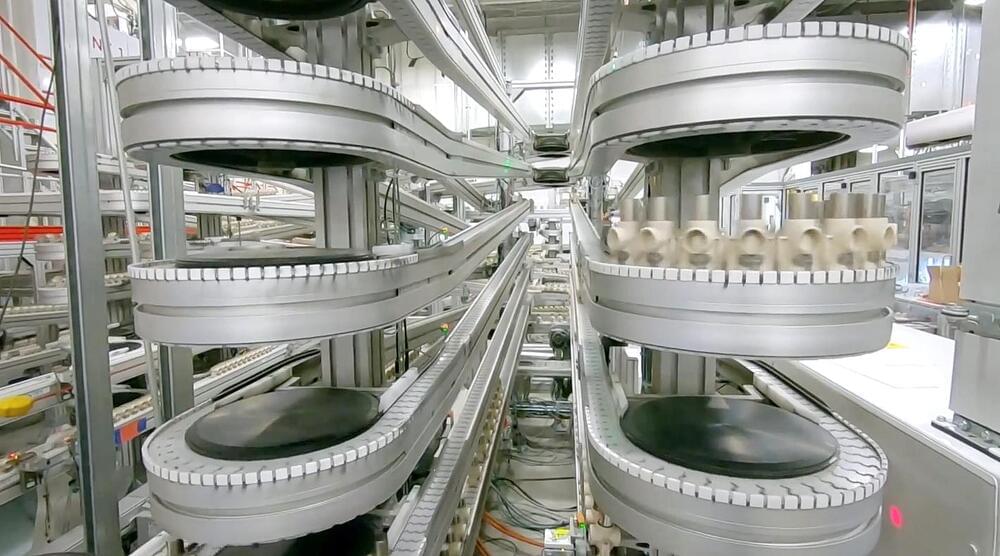
Get the latest international news and world events from around the world.


Satisfying Machines Working on Another Level
Scott Automation + RoboticsAutomated Lamb Processing Line https://scottautomation.com/en/ASA-LIFTCABBAGE HARVESTER…
SpaceX successfully completes first launch of 2022 from Florida
ORLANDO, Fla., Jan. 6 (UPI) — SpaceX kicked off a surge in launch activity Thursday with the successful launch of 49 of the company’s Starlink communications satellites from Florida, heading south along the state’s coastline.
Five SpaceX missions may launch in the next month on the southern polar trajectory, flying closer to the Florida coast toward Miami than most launches, according to the U.S. Space Force.
The Falcon 9 rocket lifted off as planned at 4:49 p.m. EST from Complex 39A at Kennedy Space Center. Nine minutes after launch, the first-stage booster landed successfully on a barge in the Atlantic Ocean.

Tesla Giga Nevada to start using Redwood’s recycled battery components
On Tuesday, January 4, Panasonic announced that Redwood Materials would start supplying copper foil to its battery production facility in Giga Nevada. The Japanese tech giant announced the news during the 2022 CES tech trade show.
“Our work together to establish a domestic circular supply chain for batteries is an important step in realizing the full opportunity that EVs have to shape a much more sustainable world,” said Allan Swan, the President of Panasonic Energy of North America, at the latest CES tech trade show.
Redwood Materials, which former Tesla CTO JB Straubel founded, will be supplying Panasonic with copper foil made from recycled materials. The company recycles scripts from discarded electronics like cell phone batteries, laptops, power tools, and even scooters and electric bicycles. Redwood extracts materials like cobalt, nickel, and lithium, which are usually mined, from discarded electronics.


Are skin, hair, posture and vitality good indicators of biological age?
The latest episode of the Huberman Lab Podcast is all about the aging process and how to slow, halt or reverse it. My guest is Dr. David Sinclair from Harvard Medical School.
We discuss:
• Epigenetics.
• Fasting, breaking fasts.
• Nutrition, artificial sweeteners.
• How puberty impacts aging.
• Resveratrol, caffeine, electrolytes.
• NAD, NMN, Metformin, Berberine.
• Specific supplementation protocols.

Google Docs comment feature exploited to distribute phishing links
A team of security researchers at Avanan is reporting that hackers are taking advantage of a Google Docs security vulnerability—one that takes advantage of a comment feature. They are claiming that they saw hackers using the vulnerability to target 500 inboxes of 30 Outlook users involving over 100 individual email accounts.
The team at Avanan claims that they found an earlier exploit in Google Docs last June—one that allowed hackers to send phishing links to users. Then, this past October, they discovered that hackers had found another way to send phishing links to unsuspecting users, using the comment feature. They further claim that the vulnerability was not fixed by Google and because of that they began seeing hackers taking advantage of the vulnerability last month.
The hacking approach is both simple and straightforward—a hacker creates a Google Docs document and adds comments to it that include an @ symbol followed by an email address. The symbol automatically alerts the system to send an email to the person designated in the email address—the email that is sent has phishing links in it, sending the user to a webpage that could lead to malicious code.

Antimatter Mystery Continues To Perplex Scientists
Scientist studying the reason why no antimatter is observed in the universe have uncovered a mystery in their data. While some particles decay in a manner that favors matter, other particles do not. Current theory cannot explain this discrepancy.